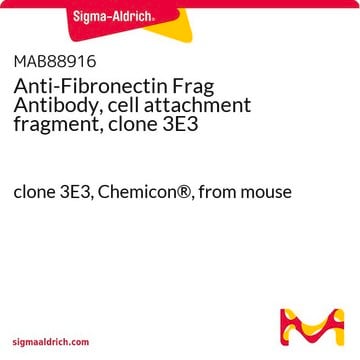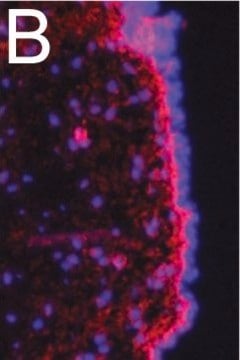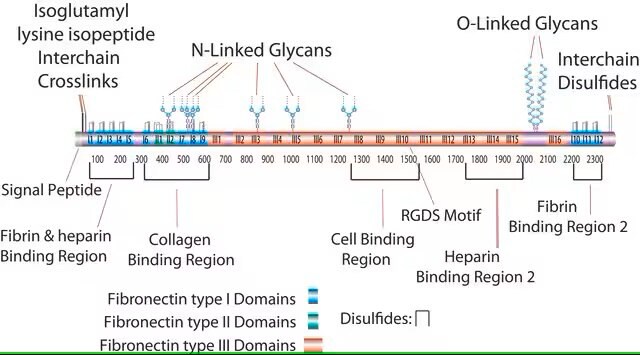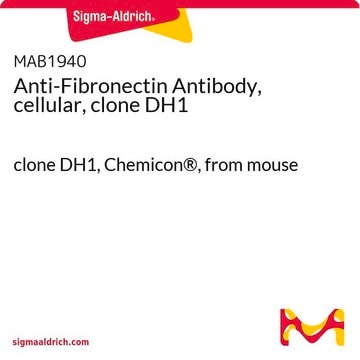MAB1934
Anti-Fibronectin Antibody, cell binding peptide, clone 784A2A6
purified antibody, clone 784A2A6, Chemicon®
About This Item
Produits recommandés
Source biologique
mouse
Niveau de qualité
Forme d'anticorps
purified antibody
Type de produit anticorps
primary antibodies
Clone
784A2A6, monoclonal
Espèces réactives
human, chicken
Fabricant/nom de marque
Chemicon®
Technique(s)
ELISA: suitable
western blot: suitable
Isotype
IgG1
Numéro d'accès UniProt
Conditions d'expédition
wet ice
Modification post-traductionnelle de la cible
unmodified
Informations sur le gène
chicken ... Fn1(396133)
human ... FN1(2335)
Spécificité
Immunogène
Application
Microscopy
Western blotting at 1-5 μg/mL
Cellular Adhesion Studies
Note: Dilution without addition of carrier protein may cause denautration or adherence of the antibody to the vial. Dilution into a 1% bovine serum albumin containing buffer is recommended.
Optimal working dilutions must be determined by end user.
Cell Structure
ECM Proteins
Forme physique
Stockage et stabilité
Autres remarques
Informations légales
Clause de non-responsabilité
Not finding the right product?
Try our Outil de sélection de produits.
Code de la classe de stockage
10 - Combustible liquids
Classe de danger pour l'eau (WGK)
WGK 2
Point d'éclair (°F)
Not applicable
Point d'éclair (°C)
Not applicable
Certificats d'analyse (COA)
Recherchez un Certificats d'analyse (COA) en saisissant le numéro de lot du produit. Les numéros de lot figurent sur l'étiquette du produit après les mots "Lot" ou "Batch".
Déjà en possession de ce produit ?
Retrouvez la documentation relative aux produits que vous avez récemment achetés dans la Bibliothèque de documents.
Notre équipe de scientifiques dispose d'une expérience dans tous les secteurs de la recherche, notamment en sciences de la vie, science des matériaux, synthèse chimique, chromatographie, analyse et dans de nombreux autres domaines..
Contacter notre Service technique







